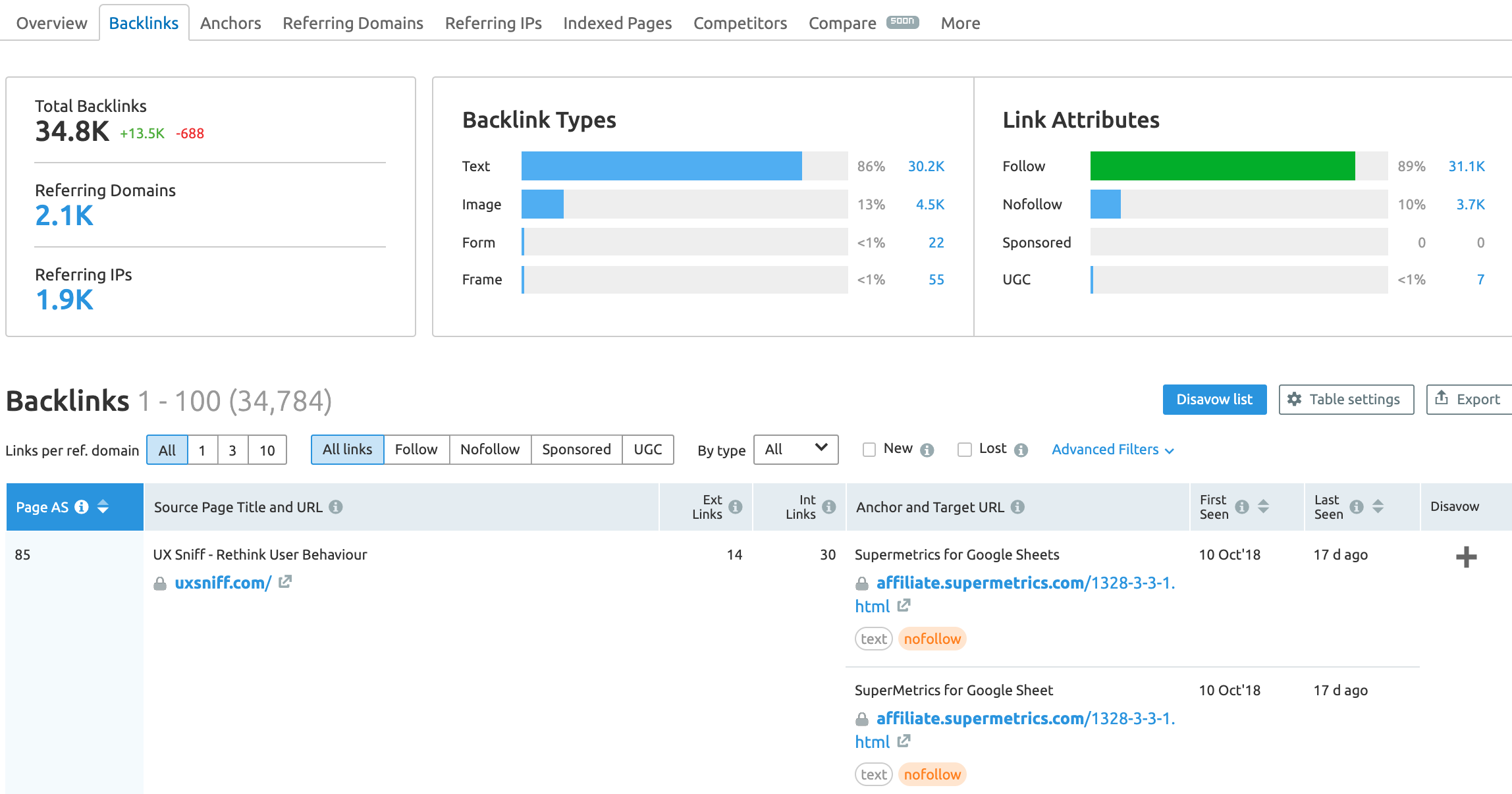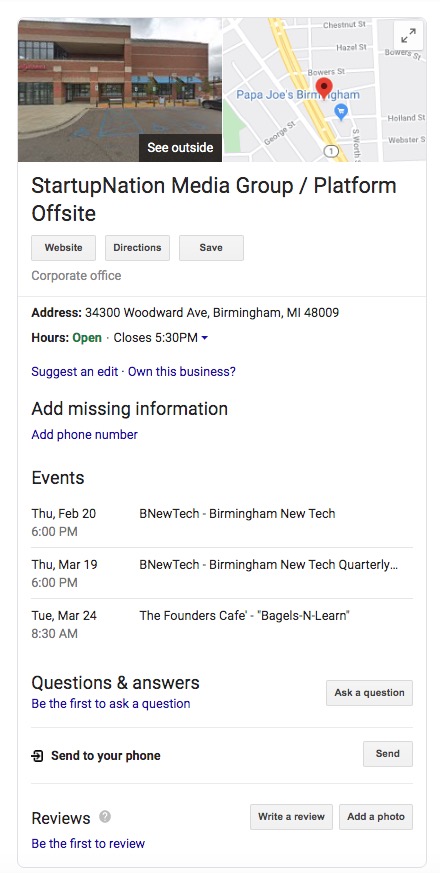Startups that manage to uncover the motivation behind searches that land users on their website have an advantage over their competitors. Having access to this data provides an opportunity to deliver a superior user experience that generates long-term revenue.
In this article, we will take a look at the most recent trends in Google’s ranking factors. While Google is getting better at analyzing content and interpreting users’ search intent, PageRank is far from being a simple algorithm.
Understanding how you can improve your ranking in 2020 is especially important for startups that are in the early stages of building their authority.
StartupNation exclusive discounts and savings on Dell products and accessories: Learn more here
Search intent vs. keyword research
Every organic search campaign begins with keywords. Since you want to bring customers to your website, you need to determine how to optimize your content based on what terms users search on Google.
But if you go one step further, you find that behind every search there is intent. And intent is the starting point and driver of all customer journeys. Users could be looking for a specific product or service, a solution or simply more information about a certain topic.
Even if search engines are getting better at understanding users’ intent, keyword research is not likely to become entirely obsolete. When you optimize your page for specific keywords, you make it easier for users to understand what your page is about.
Moving from keywords to intent means not being overly focused on optimizing the titles, subheadings, meta descriptions and copy of your articles and landing pages for particular keywords. That is, if we assume Google to be all about matching search results with users’ search intent.
The simplest way to optimize for intent is to run a search query for your targeted keyword, go through the top results and create similar content for that keyword. This will show the connection between your keywords and what users actually want to see.
The increased use of featured snippets, rich answer boxes, “People also ask” and “Related search” speak for Google’s desire to answer users’ questions. Google is trying to first understand the user’s question, then analyze all available answers and rank them in order of relevance.
Internal links
Because link building is so strongly focused on earning outbound links, internal links often receive much less attention. But keep in mind that internal links are a ranking factor, too. The number and context of your internal links impact the importance of your pages for Google.
A shallow navigational structure where users need no more than three clicks to reach every page is user-friendly and maximizes the positive impact of internal links as a ranking factor. You can also perform a site audit where you scan your website for on-site factors such as broken links, page speed, load time, meta descriptions and anchor texts.
Authority is not only crucial for outbound links, but also for internal links. So, if you have a specific page that you want to boost, you may link to it from the most authoritative pages within your website.

E-A-T (Expertise, Authority, Trust)
While not an official ranking factor, E-A-T is a necessary ingredient for all brands. And since first page results are dominated by brands, establishing a strong brand is what all startups should strive for in their SEO.
A key to building E-A-T for your startup (and improving your ranking in the process!) is publishing expert content that answers to users’ needs and understands the intent behind their queries. And there are two ways to go about creating such content. Either you are the expert, or you interview experts and cite credible sources to back up your claims.
In either case, your expert content has to meet users’ needs and ultimately understand the intent behind search queries. The next step is authority, which you can establish through quality backlinks, building a reputation across all relevant channels.
Trust means that customers find you reliable. For example, social media, reviews and testimonials are good for building social proof. Technical aspects such as making your website HTTPS secure and having a smooth design also add trust. You might want to include your contact information and show the faces of your team on your website to help establish that trust.
Related: 3 Link-Building Mistakes That Could Sink Your Startup’s Organic Ranking
Voice search
In a survey by Search Engine Land, 70 percent of respondents reported using voice search at least a few times per week. And even if the predictions about the rise of voice search end up being overestimated, the increased use of voice-assisted technology (including both voice search and voice assistance) does have an impact on SEO and ranking.
Let’s take a look at how you can optimize your startup’s website for voice search.
First of all, voice searches tend to be more conversational and more specific than traditional keyword searches. By including natural, conversational expressions and more long-tail search words in your content, you can try to rank for voice search.
Instead of using typical keywords such as “best seo strategies 2020,” you may experiment with phrases such as “How can I optimize my content for Google in 2020.” Guides, FAQ sections and long articles with multiple subheadings, for example, are ideal for these keywords, as they lend themselves well to different searches and questions.
Since many people choose voice search over keyword search to get a faster answer, your content must be to the point and easy to navigate.
Zero click searches
A zero click search refers to a search engine results page (SERP) that answers a search query directly at the top of the page without the user having to click any results. These searches are part of Google’s strategy to improve its user experience and create enhanced search results that require zero clicks from users.
Featured snippets, instant answers and knowledge graphs are taking over the top results for many search queries. This is a positive for users whose search intents are satisfied immediately after they type their query. Voice search users, in particular, who are looking for short and fast answers to specific questions benefit from this trend.
While the increase in zero click searches translates into lower CTR for the top results, it means that you can also aggregate traffic from the first result. And you have a chance to occupy more SERP real estate.
Having your content featured in a zero click search makes your website more desirable for users. It becomes the go-to website that Google recommends for that search query. Even if challenging to track, they expose your brand to an audience and build familiarity.
Here are some optimization techniques that you can apply to zero click searches:
- Answer as many closely related questions in one article as possible and organize them into your blog categories, titles and subheadings based on their specificity.
- Keep a close eye on the “People Also Ask” section of Google. It can help you expand on your topic and identify related questions that you can answer in the same post.
- Similar to optimizing for voice search, write concise but thorough answers. A common featured snippet, for example, is between 40 to 50 words.
- Take advantage of visuals and use images to complement your written answers. Ideally, you should create your own images, but free stock photos can work, too.
Backlink diversity
In terms of off-page SEO, the need for external page links to your website is still important. Quality backlinks from authoritative websites with a high domain authority and a good amount of traffic carry the most value for link building.
However, it’s equally important that you have an extensive network of collaborators who can link to your pages. Having links from a small number of sources isn’t good for your ranking. The most obvious way to attract more backlinks is to invest in quality content.
For startups, it can be useful to also look into competitor backlinks. It will help you get a grasp of what type of domains in your niche are linking back to websites similar to yours.

Other common techniques to diversify your backlink profile include guest posts, sharing infographics, creating round-up posts, engaging on social media and forums, converting possible unlinked mentions into backlinks and using services such as Help a Reporter Out (HARO).
Content freshness
Consumers want to find results that are relevant and recent. Recency signals that the information is up-to-date and therefore accurate.
As a sophisticated algorithm, page rank is able to differentiate the level of freshness for each query. For example, when you search for current events, the top results are usually all the most recently published. The same applies to recurring events and information that is prone to frequent changes.
But updating content on your website just to make it fresh for Google isn’t the most optimal approach. A better strategy is to place users at the forefront and think how you can improve your pages to offer a better user experience. Update content with the goal of providing more accurate statistics, links and other external resources, for example.
Also, keep in mind that there are multiple factors at play. What improves the ranking of one website might not do the same for yours. Focus on your own website data and conduct regular site audits using tools such as SEMrush, Ahrefs or Moz.
Schema markup
Schema is a collection of structured data, or semantic markup that you can add to your HTML. The purpose is to improve the way Google displays your page in the SERP. By adding schema markup to your HTML, you enhance rich snippets that appear below the page title and optimize for knowledge graphs on the top of the search results page.
In this example, the knowledge panel includes useful information such as an address, opening hours and even upcoming events organized by the business. You can use schema to mark up not only your business details, but also your products and services.
With the advent of zero click searches, schema has become a handy tool for improving snippet eligibility. Schema is also ideal for voice search optimization. When you have structured data, it can feed information directly to Google Assistant.
Backlink quality and relevance
Given the ever-increasing focus on content and link quality, you should use backlinks as a trust building strategy. A backlink on an authoritative website indicates to both Google and users that your content is valuable.
Quality backlinks are particularly helpful for those targeting competitive keywords. And when it comes to link building in general, targeting only selected outlets with a high domain authority and similar audience is what seems to have the strongest impact.
In terms of guest posting, recurring contributions to influential outlets are ideal for building your personal brand and maximizing your real estate in the SERP. Therefore, authoritative websites that operate in the same niche are your best bet at earning powerful ranking signals and driving quality traffic.
Sign Up: Receive the StartupNation newsletter!
HTTPS
When you have this secure browsing protocol in place, it signals to users that your website can be trusted. It adds privacy and security by encrypting all communication and exchanged data. You recognize a HTTPS site from the padlock icon next to the domain.
HTTPS is a ranking signal for Google, and not having it on your website can damage your traffic. And getting an SSL certificate that activates the HTTPS protocol is important not only for ranking reasons: websites that handle personal data or online transactions need it most of all for security.
In conclusion
It takes effort to keep up to date with the latest ranking trends. As a startup, you might simply not have the resources to focus on all aspects of SEO. But these 10 factors should give you an overview of the most recent trends and help you implement an effective SEO strategy for 2020.
Quality, authority and relevance are recurring themes that you can expect to retain their influence over ranking. By earning a top position and occupying the maximum real estate in the SERP, people start to recognize you as an authority in your industry. And this will allow you to drive substantially more website traffic and improve your conversation rate.






